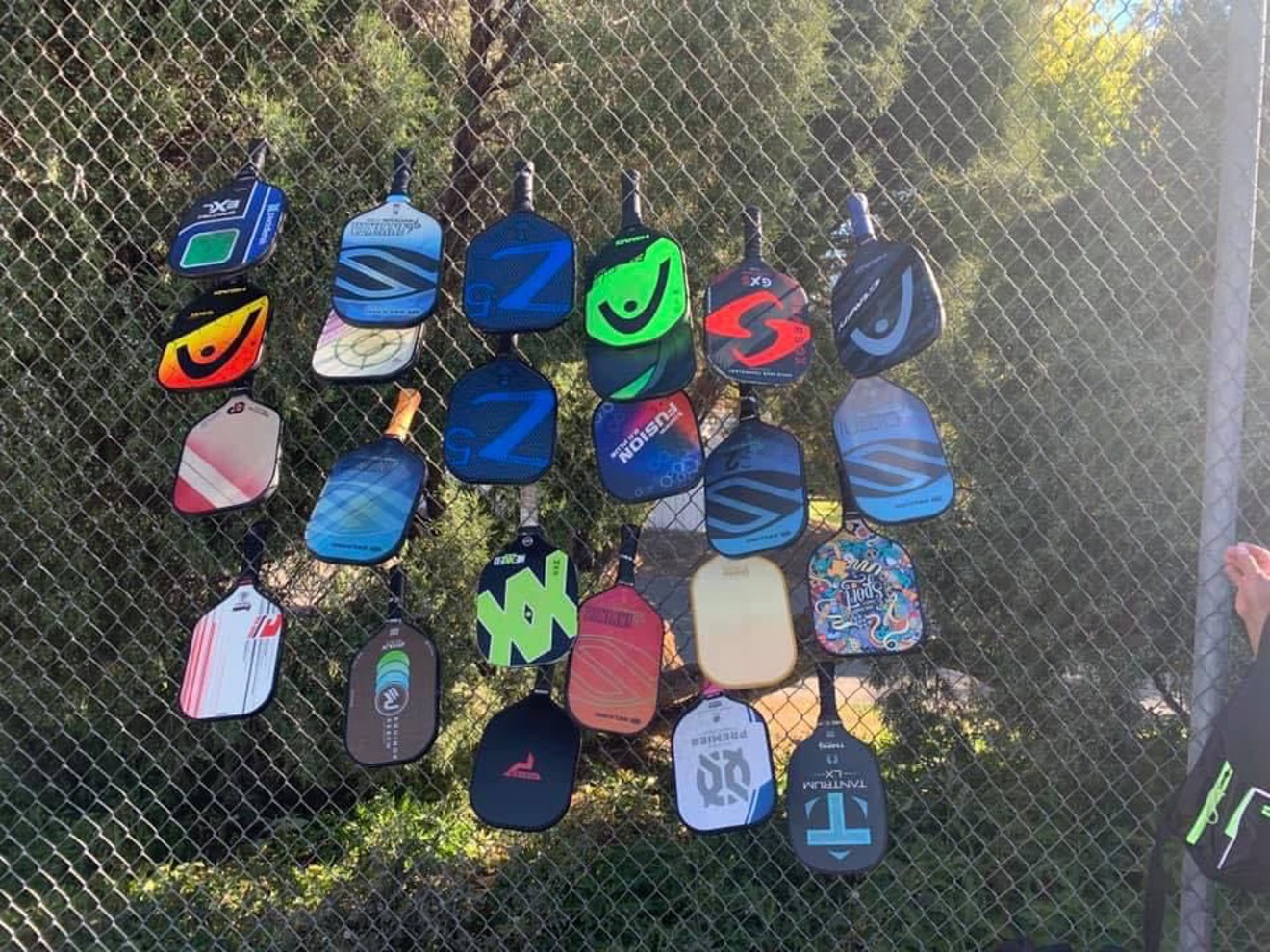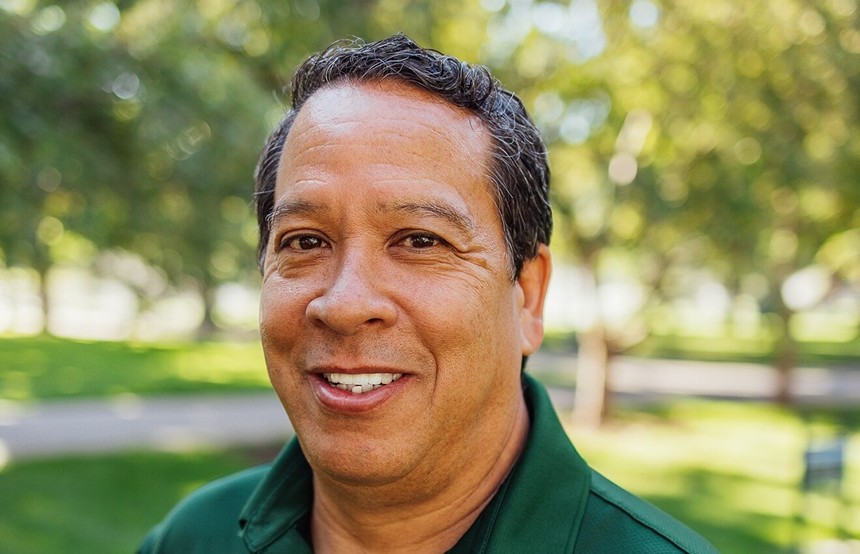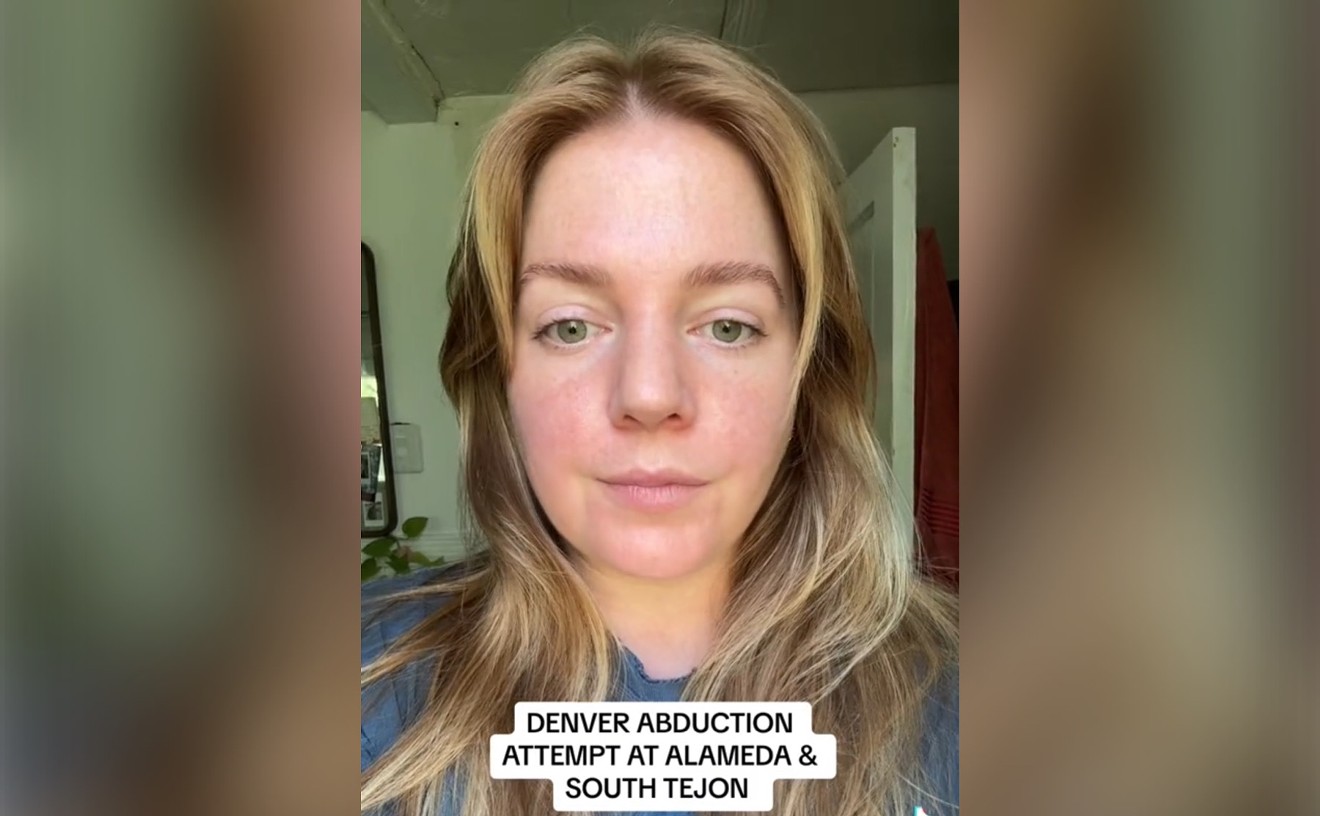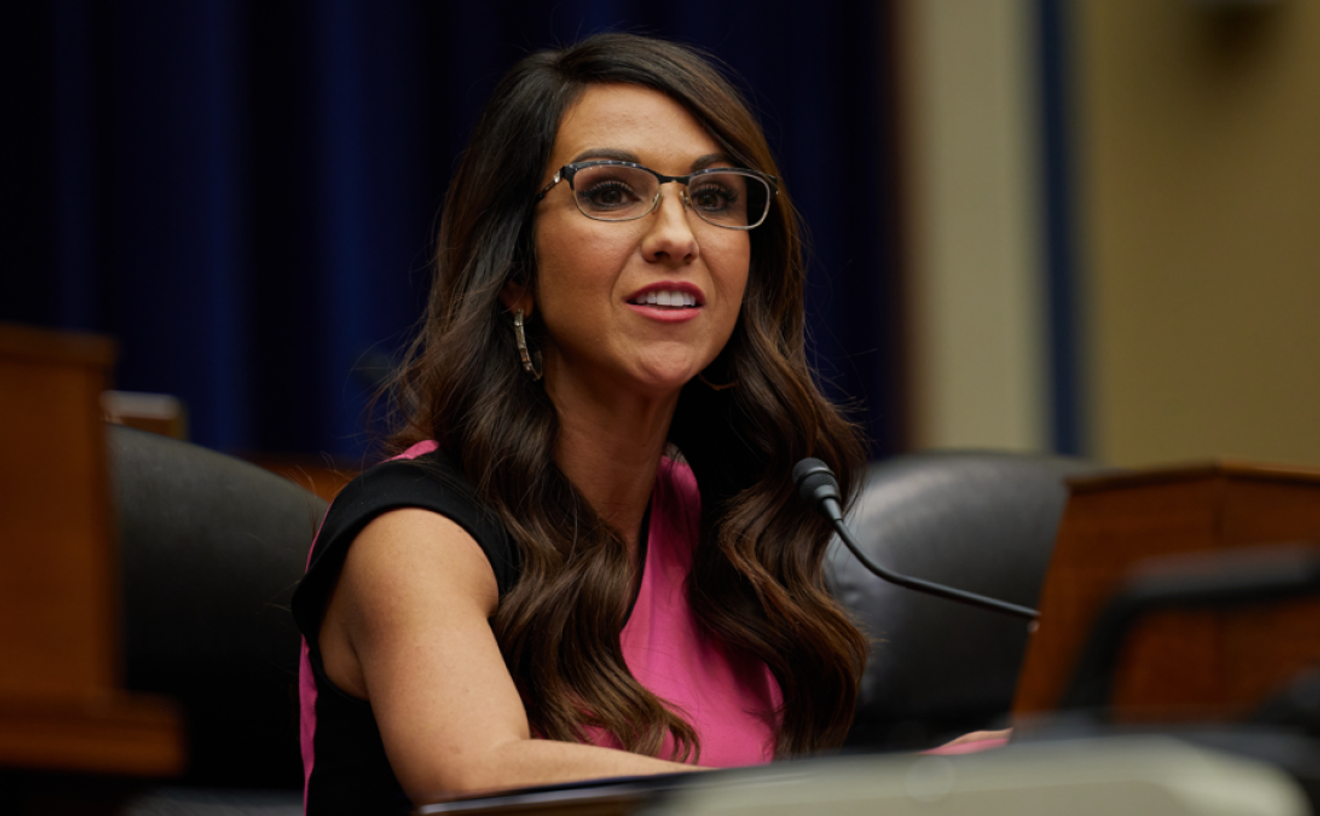Starting April 3, there will be no more pickleball at Congress Park. Not just for a week-long lull while snow melts, and not for a several-month gap while the courts are moved elsewhere in the park, which had been the plan.
No, pickleball will be gone forever.
Pickleball, a sixty-year-old sport, became wildly popular during the pandemic, and residents near the Congress Park courts started complaining about the noise and the crowd two years ago. In response, Denver Parks & Recreation decided to move the pickleball courts closer to the inside of the park, away from homes, as part of a planned restoration of all of the sports courts. But after more study, the department concluded that even that won’t fix the problems.
“I know playing pickleball is one of those things that provides a nice thing for quality of life, but something you enjoy should not negatively impact others in a manner that is just overwhelming,” says Scott Gilmore, deputy executive director of Parks & Recreation. “Pickleball, from the time people start playing on the pickleball court at eight o'clock in the morning — it's supposed to be from eight to eight at Congress, but it's even going later because people are out there playing — it's just nonstop for twelve to fourteen hours a day. There's no break.”
And the constant thwack of the hard pickleball paddles making contact with the ball has been driving some neighbors nuts.
At first, residents of the homes near the Congress Park courts enjoyed the game, Gilmore says, but when the sport took off during the pandemic, the crowds at the courts became disruptive. The Congress Park Pickleball Club has 1,400 members on Facebook who are dedicated to the game, and their conversation as they wait to play just added to the din, neighbors complain.
As the complaints got too loud to ignore, Parks & Recreation worked with the Denver Department of Public Health & Environment to study the noise. The city found that pickleball regularly violated the city’s 55-decibel noise ordinance, reaching over 70 decibels at fourteen of the eighteen homes by the courts.
Now, Denver is considering going the way of Centennial, which just instituted a six-month moratorium on new pickleball court construction within 500 feet of homes. While Denver isn’t instituting a moratorium, Gilmore says that the 500-feet measurement is a guideline it will consider when building future courts.
Even with noise mitigation measures, 350 feet is likely as close as the city would come to homes when building pickleball courts, he adds.
At Congress Park, the distance between the new courts the city had planned and the closest neighbors would have been about 300 feet. As a result, the department has nixed that project, as well as a proposed court at Sloan’s Lake that was about 100 feet from homes.
Instead, the tennis courts that would have been turned into pickleball courts during the Congress Park restoration project will remain devoted to tennis.
“They pulled a fast one on us, for sure,” says Marc Nelson, who leads the Congress Park Pickleball Club. “To remove it without having plans in place to build more courts is absurd and unacceptable.”
He says the pickleball community had no idea the plan was being scrapped, and only grew suspicious on March 30, when 9News’s Steve Staeger was reporting from the courts. That afternoon, Nelson heard that pickleball was about to be booted entirely.
That the city put up a new project sheet for the Congress Park updates so quickly indicates that Parks & Recreation had been planning the switch for some time and didn't notify the people who use the park, Nelson charges.
Gilmore confirms that the decision wasn’t made in haste, and says the city has been considering what to do about pickleball problems for some time. Parks & Recreation has had several issues with the Congress Park Pickleball Club, including disputes with members who've installed personal equipment on the courts and held an unsanctioned tournament sponsored by a tequila brand.
“He's done these things, and it has not helped his cause, to be honest,” Gilmore says of Nelson.
Some residents are afraid to speak up in public against the pickleball crowd, Gilmore adds, sharing an email from one:
“When the court first opened, we thought it would be fun to learn to play, and it would be a great neighborhood addition,” the resident wrote. “Little did we envision the constant traffic and noise, and the inability for residents to actually use the courts, because they are occupied from sun-up until sun-down by the Congress Park Pickleball Club, most of whose members do not live anywhere near the park.”
Although Nelson questions why the comfort of a few homeowners outweighs the interests of thousands of players, Gilmore says it's not a numbers game: It's about the law.
“We have rules and regulations in the city that we need to follow and adhere to,” he says. “If this pickleball court was run by a private business that wasn't Denver Parks & Rec, they would have been either told to mitigate it and get the noise under control or shut it down.”
Denver is updating its noise ordinance this summer, and the DDPHE asked Gilmore his thoughts about removing recreational noise restrictions as part of that project. “I would not be supportive of modifying that part of the noise ordinance to allow for pickleball play closer to people's homes,” he says he told health department officials.
Aside from overwhelming neighbors with noise, Gilmore says, pickleball players also tend to take over the tennis courts, blocking their use. “We should not put pickleball and tennis together because pickleball spills onto the tennis courts and causes conflict,” he explains. “Our parks should actually be built to minimize conflict. People should be going to the parks to actually enjoy themselves, and really, the locating of these pickleball courts in Congress Park has caused a lot of conflict.”
Nelson says that no one ever seems to want to play tennis on the tennis courts. But impromptu pickleball games there are not allowed under Parks & Recreation rules, and the department is cracking down.
“As of Monday, we will post on all the tennis courts that remain open that pickleball is not allowed on those courts due to violating the noise ordinance,” Gilmore says. “That's going to be something that will be enforced on Monday.”
Nelson isn’t giving up, though. The club is conducting experiments on ways to reduce the noise and sending out a survey about the benefits of pickleball. It's also looking into legal recourse, working with the lawyer who represented “Mayor of Pickleball” Arslan Guney when the city pressed criminal charges against the 71-year-old man for drawing squares on the basketball court at the Central Park Recreation Center in order to make it easier for people to set up temporary pickleball courts.
In the meantime, Gilmore has formed a pickleball advisory group that includes Nelson; Denver City Council member Chris Herndon, a pickleball player; concerned residents and other pickleball players.
“We can have a real discussion about creating pickleball courts and venues for people to play that do not negatively impact the neighborhood,” he says. “It would be incredibly irresponsible, knowing what we know that we didn't know before, to be building pickleball courts back in Congress Park.” Instead, the city will work with the new group to identify other places where pickleball could thrive without disrupting others.
But those who've held court at Congress Park fear that setup can never be replaced.
“I travel for my job, and I go to all different kinds of courts all throughout the U.S. and Mexico, and there's nothing like Congress,” says Nelson, whose job is equipping rugby and soccer stadiums with radio equipment for referees. “There's nothing like the community Congress brings, the social aspect of friends I’ve made, the networking opportunity.”
While Gilmore respects those connections and all the other benefits of playing a sport, he insists that it's simply not possible for pickleball to co-exist with the rest of the activity at Congress Park. Not now.
As one advisory group member noted in an email: “The noiseless pickleball will rank up with the wheel and the lightbulb as one of humanity's great inventions."
[
{
"name": "Air - MediumRectangle - Inline Content - Mobile Display Size",
"component": "12017618",
"insertPoint": "2",
"requiredCountToDisplay": "2",
"watchElement": ".fdn-content-body",
"astAdList": [
{
"adType": "rectangle",
"displayTargets": "mobile"
}
]
},{
"name": "Editor Picks",
"component": "17242653",
"insertPoint": "4",
"requiredCountToDisplay": "1",
"watchElement": ".fdn-content-body",
"astAdList": [
{
"adType": "rectangle",
"displayTargets": "desktop|tablet"
},{
"adType": "rectangle",
"displayTargets": "desktop|tablet|mobile"
}
]
},{
"name": "Inline Links",
"component": "18838239",
"insertPoint": "8th",
"startingPoint": 8,
"requiredCountToDisplay": "7",
"maxInsertions": 25
},{
"name": "Air - MediumRectangle - Combo - Inline Content",
"component": "17261320",
"insertPoint": "8th",
"startingPoint": 8,
"requiredCountToDisplay": "7",
"maxInsertions": 25,
"watchElement": ".fdn-content-body",
"astAdList": [
{
"adType": "rectangle",
"displayTargets": "desktop|tablet"
},{
"adType": "rectangle",
"displayTargets": "desktop|tablet|mobile"
}
]
},{
"name": "Inline Links",
"component": "18838239",
"insertPoint": "8th",
"startingPoint": 12,
"requiredCountToDisplay": "11",
"maxInsertions": 25
},{
"name": "Air - Leaderboard Tower - Combo - Inline Content",
"component": "17261321",
"insertPoint": "8th",
"startingPoint": 12,
"requiredCountToDisplay": "11",
"maxInsertions": 25,
"watchElement": ".fdn-content-body",
"astAdList": [
{
"adType": "leaderboardInlineContent",
"displayTargets": "desktop|tablet"
},{
"adType": "tower",
"displayTargets": "mobile"
}
]
}
]












